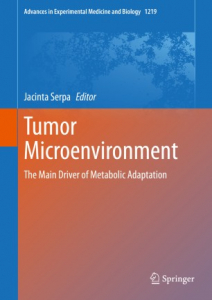
Ana Luísa Silva, Márcia Faria, and Paulo Matos
The relationship between inflammation and cancer has been long recognized by the medical and scientific community. In the last decades, it has returned to the forefront of clinical oncology since a wealth of knowledge has been gathered about the cells, cytokines and physiological processes that are central to both inflammation and cancer. It is now robustly established that chronic inflammation can induce certain cancers but also that solid tumors, in turn, can initiate and perpetuate local inflammatory processes that foster tumor growth and dissemination. Inflammation is the hallmark of the innate immune response to tissue damage or infection, but also mediates the activation, expansion and recruitment to the tissues of cells and antibodies of the adaptive immune system. The functional integration of both components of the immune response is crucial to identify and subdue tumor development, progression and dissemination. When this tight control goes awry, altered cells can avoid the immune surveillance and even subvert the innate immunity to promote their full oncogenic transformation. In this chapter, we make a general overview of the most recent data linking the inflammatory process to cancer. We start with the overall inflammatory cues and processes that influence the relationship between tumor and the microenvironment that surrounds it and follow the ever-increasing complexity of processes that end up producing subtle changes in the splicing of certain genes to ascertain survival advantage to cancer cells.
Doi: 10.1007/978-3-030-34025-4_13
Cited as: Silva AL, Faria M, Matos P (2020) Inflammatory Microenvironment Modulation of Alternative Splicing in Cancer: A Way to Adapt. In: Serpa J. (eds) Tumor Microenvironment. Advances in Experimental Medicine and Biology, vol 1219. Springer, Cham. https://doi.org/10.1007/978-3-030-34025-4_13.


